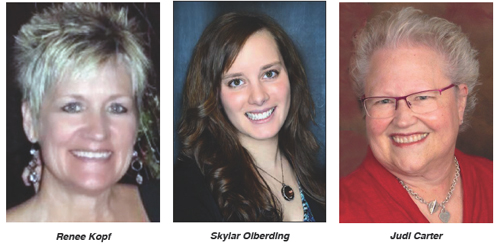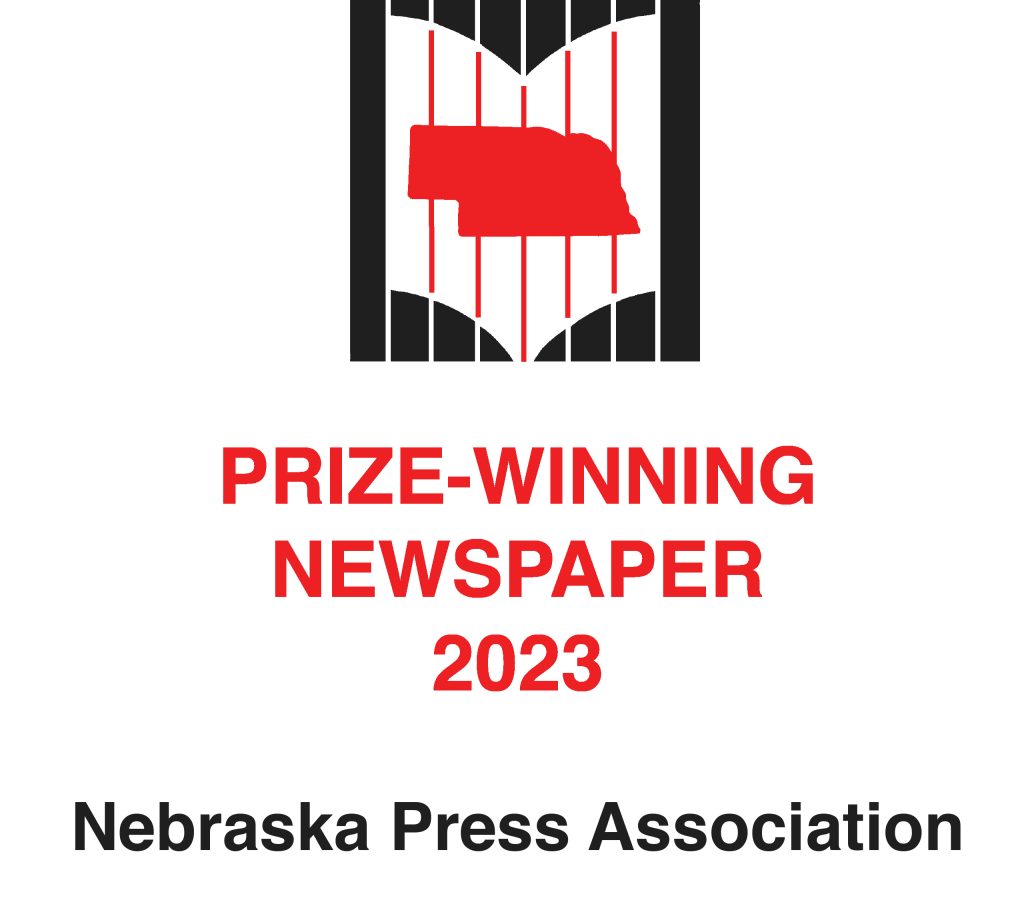
Renee Kopf has performed an incalculable number of tasks within the immeasurably broad field of Information Technology for Falls City Public Schools the past two decades, a period that just so happened to perfectly coincide with a technological revolution that transformed communication and the education system like no other time in American history.
Consider that in the mid-1990s, retired Tech Coordinator Judi Carter was the first-ever FCPS employee dedicated to exclusively to technology/curriculum and Renee came in two years later. At the time, broadband, the digital photograph, DVD, bluetooth, WIFI, USB, RealVideo, memory flash drives, Google or social media were either in developmental stages or maybe existed solely in the world of “Homeboys in Outer Space” and other sci-fi TV shows. Neither you nor your computer was fluent in the language of JavaScript, aka Mocha, which allows user interaction on Internet browsers, and not a single word in the English language started with a lowercase “i.”
Thanks to largely to Judi and Renee’s efforts, FCPS has remained out front and on the cutting edge technologically. And now the baton will be passed to one of the beneficiaries of District 56’s steadfast commitment to preparing students for success in today’s tech-savvy world. Skylar Olberding will start working alongside Renee, who will retire in July, early next month, Supt. Tim Heckenlively said. Skyler will take over as Technology Director for the 2016-17 school year. She graduated with honors from FC High in 2011 and is in the process of completing her Bachelor of Science Degree in Business Management and Marketing from Northwest Missouri State University in Maryville, MO. Skylar will earn her Master of Business Administration this summer.
She’s walking into a situation positioned to succeed in the state-of-the-art, though she’ll be fitted into some mighty big shoes.
FCPS boasts the newest technology available to its more than 760 students and some 80 teachers and administrators district-wide. The Network Nebraska Internet connection comes from SE NE Communications through a fiber connection at the high school. All schools are connected with fiber, which gives us optimum speeds for uploading and downloading internet information. The district filter allows officials to filter sites that are not acceptable for district students and is mandatory as part of legislation and E-rate funding. Five servers meet FCPS’ needs for staff document storage, student information system (Powerschool), antivirus, web hosting, and district accounting services. An HP wireless controller and new access points were installed district wide with special attention paid to the high school building in anticipation for the 1:1 iPad initiative.
All teachers have a Macbook Pro computer and are now utilizing an iPad in their classrooms. Each school has 3-4 iPad carts available for use, as well as mobile computer carts. New this year, Chromebooks were added to classrooms at both elementary schools as well as one cart at FC<S. The 2015-16 Monsanto Grant for $25,000 made it possible to add 3-24 Chromebook carts and a 3D printer at the Middle School as well.
Smartboard and projectors are installed in every elementary classroom as well as some of the FCMS and FCHS classrooms. A Smartboard is an interactive whiteboard which operates as part of a system that includes a computer, a projector and whiteboard software. All classrooms district-wide are equipped with ceiling-mounted projectors and at FCHS, ceiling-mounted projectors are being replaced with HDMI televisions for projection from the teacher computer.
In January, 2014, every high school student received an iPad. Utilitzing eBackpack and Google Drive; teachers and students are able to send and receive homework assignments and information paperlessly.
“Looking into the future, we hope to add pdf textbooks as part of our paperless initiative,” Heckenlively said.
PowerSchool, housed at the University of Nebraska, is a comprehensive student information system that enables students and parents to easily manage a wealth of information online: Daily grades, report cards, fee balances, lunch balances or daily attendance. Results can be e-mailed on a daily, weekly or monthly basis. Daily bulletins can be accessed. Grades are inputted into the computer every Monday allowing parents to have an up-to-date assessment of their child’s progress.
STAR READING AND STAR MATH are the most widely used computer-adaptive tests in K-12 schools, and are the preferred method of assessment because of their accuracy, efficiency, ease of use, and outstanding value. With new tools, enhanced content, and reports, this remarkable suite of assessments lets you get the most out of data to drive daily instruction and practice like never before. STAR Enterprise assessments provide Common Core State Standards reporting, and are aligned to state standards, and linked to state tests so educators at all levels can individualize instruction to fill learning gaps while there is still time to do so.
IXL is the Web’s most comprehensive math practice site and is being utilized at North, South and Middle Schools. With IXL’s state standards alignments, you can easily find unlimited practice problems specifically tailored to each required standard. IXL automatically tracks student progress and displays proficiency scores in the state standards reports. These reports allow you to quickly evaluate student aptitude and identify trouble spots.
That’s not to suggest the work is done. Not by a long shot. Information Technology, on one hand, covers such a wide scope of subjects, and requires so many different skill sets to carry out that laundry list of perpetually evolving functions, it’s nearly impossible to find one commonly accepted definition of “I.T.” To come to an accurate estimation of the number of definitions, it may be best to take the number of organizations in the world and multiply that by how many I.T. roles each employs.
On the other hand, the smaller the organization, the bigger the job description. Around here, at a small rural Nebraska school district, for instance, “I.T.” refers to all computing and everyone who computes. Students and faculty alike repeatedly called on Renee when trouble inevitably shot back with superior weapons, and either dying RAM, uncooperative software or simply a compromised attention span, had awakened the dreaded “spinning wheel of death.” To “boot the computer” isn’t always an ambiguous command, and that’s when Renee’s phone rings. She can hack it.
And just because the last 20 years of technological advances completely transformed the world, not unlike the Industrial Revolution did in the 1800s or the automobile in the 1900s, that doesn’t mean the next 20 years won’t see equally life-altering advances. It’s predicted that by 2020 we’ll be able to text by merely thinking (have to think an uptick in domestic disturbances might follow; incidentally, male birth control is due 2021), and holographic TVs will go mainstream. Also in 2021, the launch of the flying car. For sure, technology is advancing at a frenetic pace. Henry Ford churned out a million cars annually by 1920, but none of them took flight. Don’t see any pigs up there, either.



Leave a Reply
You must be logged in to post a comment.